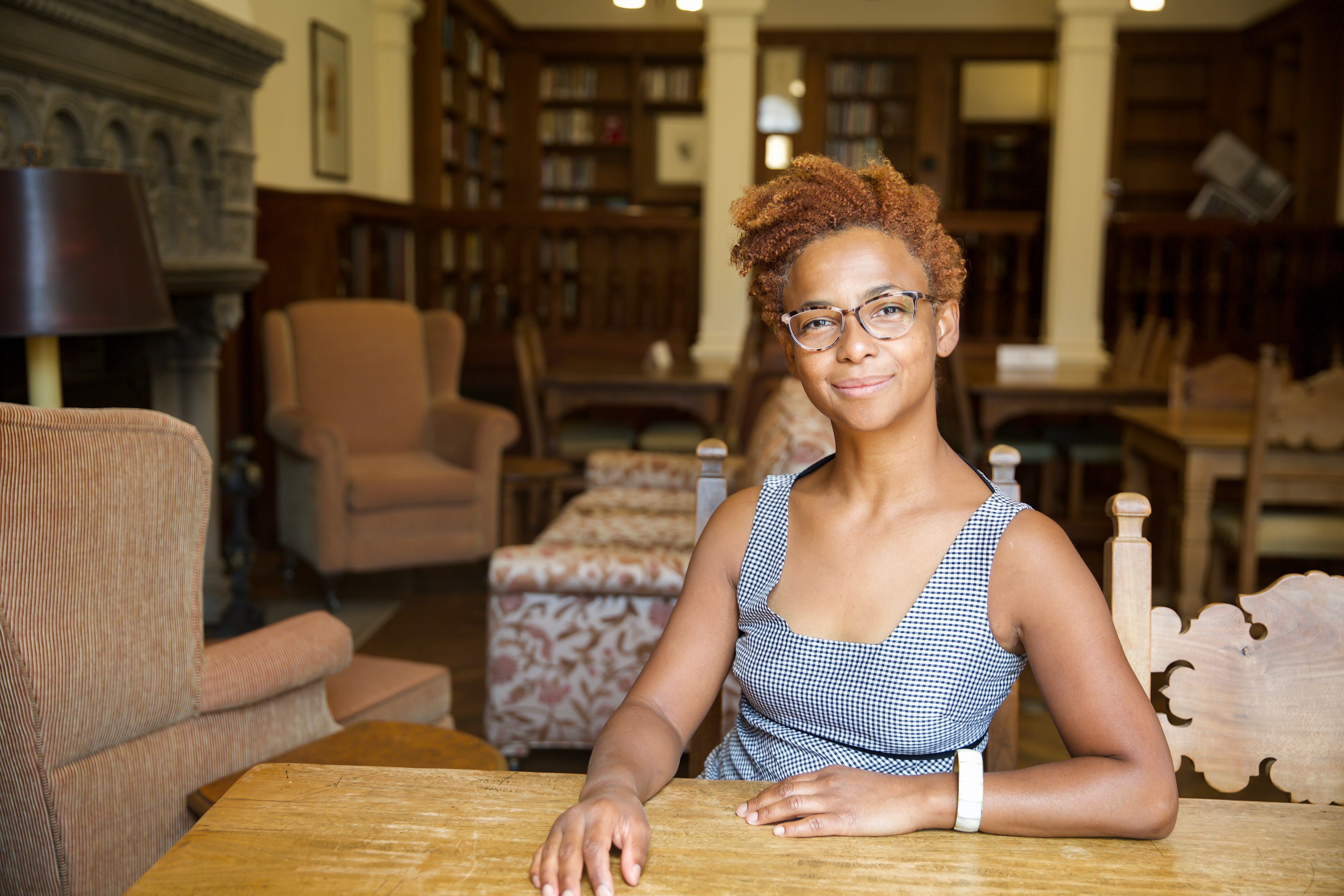
This fall, eleven new tenure-track faculty members joined Scripps College, including two W.M. Keck Science Department faculty, a Fletcher Jones Chair in Computation, and a Consortium for Faculty Diversity Fellow in Dance. As part of our ongoing series on Scripps’ faculty, the Office of Marketing and Communications recently sat down with Julin Everett, who joins the College as an assistant professor of French studies.
Julin Everett is an assistant professor in the Department of French Studies at Scripps College. She holds a PhD in Francophone studies from UCLA, and her areas of expertise also include visual studies, postcolonial studies, Shoah studies, and queer studies. Her book Le Queer Impérial: Male Homoerotic Desire in Francophone Colonial and Postcolonial Literature was published by Rodopi-Brill in 2018.
Marketing and Communications: Your research and publications blend Francophone studies, visual studies, postcolonial studies, Shoah studies, and queer studies. Tell us more about how these topics come together in your work.
Julin Everett: I like to write about, think about, and talk about any group of people who have been told that they “can’t.” Naturally, that links me to colonial and postcolonial studies, studies of race, and studies of sexuality. I’m very contrary—whenever people’s expression is suppressed, I want to bring those people back into the public sphere.
MC: What led you from your BA in classical singing to a PhD in Francophone studies?
JE: I started singing classical music in high school. I went to the Fame school in New York and learned about opera, and eventually I was a student at Tanglewood [a classical music school affiliated with Boston University], where I learned how to pronounce different languages, including French. I took my first French class for fun while I was studying music—and it was fun! And music was . . . not as fun.
The process took me a while, though. I really didn’t know what I wanted to do with my life. I have a presentation called “In Defense of Floundering,” and I was kind of a flounderer. I graduated; I traveled. I was a late bloomer, but it was one of the best things I did, because I got to see all the different possibilities available to me. When I decided to pursue French, I wasn’t just settling for the first thing that came along.
MC: What kinds of classes are you interested in teaching at Scripps? What new classes would you hope to develop?
JE: I’m actually developing a visual studies course that I hope to teach this spring. It’s called Se Faire-Connaître en Images, which roughly translates to Making the Self Known in Images. In our current era of social media and selfies, people assume that many photos are taken voluntarily, but there are a lot of types of images that historically have been involuntary, such as identification photos or photos that appear in newspapers. In this class, we’ll use images in order to talk about subaltern groups in Francophone contexts of race, gender, sexuality, and class and how dominated peoples are captured in imagery. We’ll look at people who have had identities thrust upon them, and how they in turn use images in order to insert and assert themselves in the public sphere. We’ll also talk about the ethics of photographic display and the questions we should ask when thinking about images: Who’s the subject? Who’s behind the camera? When should we display? And at what point does display become exploitative?
MC: Your faculty profile lists science fiction, gardening, dogs, and road trips among your personal interests. Is there another interesting fact about yourself that you’d like to share with the community?
JE: I fantasize about getting a degree in astrophysics! But it’s just a fantasy.

